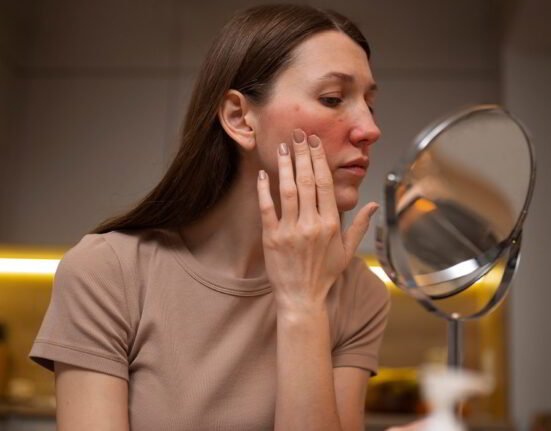Hoarding is a complex psychological state that goes beyond the accumulation of physical possessions. It is a mental illness that makes it impossible to throw things away or give them away, no matter how valuable they are. Fear of losing things is a common trait among hoarders. This fear stems from traumatic events such as childhood abuse, neglect, or financial problems. These things create a fear of losing safety, control, or important memories, which manifests as a desire for things.
Also Read: The Psychology Behind Fear
Psychological Consequences of Hoarding
Hoarders have unclear ideas about the value of things and may attach meaning to things that others consider useless. This distorted view can be caused by strong emotional attachments, beliefs that bad things will happen if you leave things behind, and a lack of understanding of the object’s true value. People who hoard often suffer from anxiety, sadness, and obsessive-compulsive disorder (OCD), which makes parting with things even more difficult.
Hoarding has far-reaching implications that go well beyond the accumulation of clutter. Hoarders experience shame, remorse, and social isolation on an emotional level. Their crowded surroundings sometimes cause shame and a reluctance to let people into their houses. This social isolation worsens mental pain, prolonging the cycle of hoarding and loneliness.
Hoarding’s filthy and dangerous circumstances offer major health concerns, including fire threats, respiratory difficulties, and bug infestations. The physical effort necessary to keep hoarded items in good condition may cause weariness and pain. Troubles with your mind, body, or things you collect should be fixed if you want to stop collecting. People who hoard might not know how to deal with their problems, make decisions, or get help from family, friends, or experts. People who don’t want to hoard should clean up their homes and lessen their chances of doing it.
Issues related to Hoarding
Mental health problems like worry, sadness, and obsessive-compulsive disorder (OCD) can make collecting even worse. The effects of collecting go far beyond just a lot of stuff piling up; they have a huge effect on people’s mental and physical health. Hoarders deal with feelings of shame, guilt, and being alone all the time. Because they make their homes messy and dangerous, they feel embarrassed and don’t want to let other people into their homes. Isolation from other people makes mental problems worse, which feeds a circle of hoarding and loneliness.
Physically, the dirty and dangerous conditions that come with hoarding pose serious health risks, such as fire dangers, breathing problems, and bug infestations. The actual work needed to keep stored things in good shape can make you tired and strained.
Must Read: Diogenes Syndrome and its Connection with Hoarding
Managing Hoarding
To effectively deal with hoarding, you need a multifaceted method that combines psychological treatments with practical tactics. Cognitive behavioural therapy (CBT) is a strong way to treat hoarding because it helps people recognise and change the false thoughts and beliefs that make them want to hoard. People who hoard can benefit a lot from exposure treatment, a method that slowly puts people in scenarios they are afraid of.
Involving family members in treatment may promote open communication, set clear limits, and generate a change-friendly atmosphere. We can empower people to overcome hoarding behaviours, improve their living situations, and improve their general well-being by identifying the underlying psychological reasons and delivering targeted solutions. When someone has obsessive-compulsive disorder (OCD), worry, or another mental illness, it can be hard for them to stay healthy and live a normal life.
Psychosocial help is very important for hoarding treatment because it gives mental support, direction, and motivation throughout the process. Having family members participate in therapy can help people talk to each other more openly, set clear limits, and make the setting more accepting of change. Managing collection behaviours is easier when underlying mental health problems are taken care of.
How to stop Hoarding habits?
It can be hard for some people to deal with their collections, but it is possible with the help of family, friends, mental health workers, and some good advice. It can help people deal with their problems in a good way and change how they feel about losing someone and how much they value that person. But what does exposure treatment mean? People do scary things because of it, like giving away things they no longer want.
In real life, you should slowly get rid of things and put them away to stop storing them. If you have a mental health issue like OCD or fear, you should also get help, hire cleaners or planners, and use resources in your community. People can also help by getting family and friends involved and putting them in touch with resources in the area. Tell people about the collection as well.
Get help early, learn more about mental health, and improve places to live to stop issues before they happen. Quick action is needed to stop the gathering and get more people to ask for help. Some people hoard because they feel bad about having mental health issues. Discarding the object can ease this sense of shame. Hoarding disease is a complicated and unique issue that has a lot to do with people’s situations, mental health issues, and skewed ideas about what things are worth. People who hoard often worry about losing something useful or important. This fear usually comes from bad things that happen to us as kids. They often have wrong ideas about what things are worth and give meaning to things that other people might think are pointless.
Summing Up
It takes time, care, and a personal method to deal with hoarding because it is a slow and personal process. People can stop gathering things and make their lives better with one-on-one coaching. To sum up, hoarding can be caused by a lot of things, such as mental or emotional worry, stressful events, and thinking that things are worth more than they are. People can learn how to stop storing, make their living situations better, and improve their health by getting personalized care.
Read books on Hoarding
- The Hoarder in You: How to Live a Happier, Healthier, Uncluttered Life
- “Digging Out: Helping Your Loved One Manage Clutter, Hoarding, and Compulsive Acquiring” by Michael A. Tompkins and Tamara L. Hartl
- “Behind the Clutter: Truth. Love. Meaning. Purpose.” by June Saruwatari
- “Stuff: Compulsive Hoarding and the Meaning of Things” by Randy O. Frost and Gail Steketee
- “Overcoming Compulsive Hoarding: Why You Save and How You Can Stop” by Fugen Neziroglu, Jerome Bubrick, and Jose A. Yaryura-Tobias













Leave feedback about this